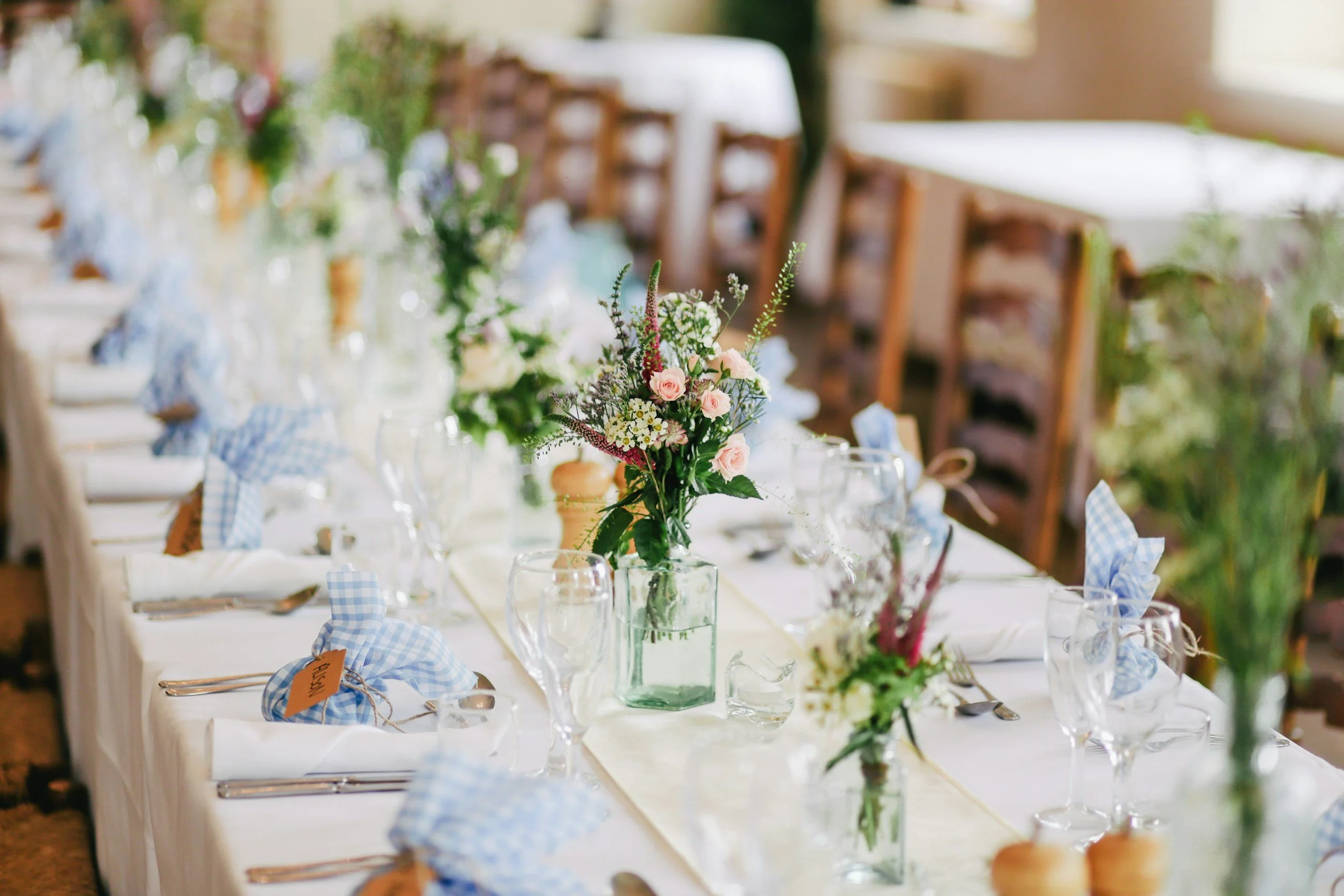Wedding Budget 101: How to Plan and Stick to Your Spending
Every couple dreams of the perfect wedding day. Few dream of the invoice that follows.
Weddings are magical, but unless you’re marrying into royalty, they’re also expensive. Between the venue, dress, catering, and surprise costs (yes, they will appear), it's easy for your dream day to turn into a financial nightmare. But fear not! With the right planning, you can create a wedding budget that works, and actually stick to it.
1. Determine Your Total Budget (a.k.a. The Reality Check)
Before you start booking vendors or dreaming of a ten-tier cake, figure out how much you can realistically spend.
Consider the following:
How much can you actually afford without going into debt?
Are family members contributing? If so, get clear commitments.
What are your non-negotiables (venue, dress, food)?
Set a hard cap and stick to it. Your future self (and bank account) will thank you.
2. Break It Down by Category
Now that you have a total budget, divide it into key spending areas. As you go through the planning process, you’ll learn what’s most important to you and how you spend your money should reflect that. In the meantime, here’s a common breakdown:
Venue & Catering: ~50%
Photography/Videography: ~15%
Attire (Dress/Suit, Accessories): ~10%
Flowers & Decor: ~10%
Entertainment: ~5%
Invitations & Stationery: ~3%
Miscellaneous (favors, transportation, tips, etc.): ~7%
Adjust based on your priorities (if a live band is a must, shift your percentages accordingly).
Wedding Budget Calculator
Adjust Budget Percentages
3. Research Costs in Your Area
Wedding costs vary dramatically by location. A NYC wedding is a different beast from a small-town affair. Do your homework:
Get quotes from multiple vendors.
Check out wedding cost calculators online.
Talk to recently married friends for insights.
Knowledge = power (and fewer financial surprises).
4. Track Every Expense
Spreadsheets, budgeting apps, or even a good old-fashioned notebook, whatever works for you, use it.
List estimated vs. actual costs.
Track deposits and payment deadlines.
Have a cushion (at least 5-10% of your budget) for unexpected costs.
If you don’t track it, you will overspend. Trust me, I did! Now, it’s a mistake I help other couples avoid. Hopefully, this will help you too.
5. Find Creative Ways to Save
Unforgettable weddings don’t all look the same and that’s okay! There’s beauty in your unique vision. Here are a few ways to save:
Consider off-peak seasons or days. Weekday weddings can be thousands cheaper than a Saturday.
DIY when possible. Invitations, centerpieces, even cakes can be self-made (if you’re up for it). This doesn’t mean you have to take it all on. You can totally assign tasks to family members or friends and hold them to it.
Skip unnecessary extras. Do guests really need monogrammed napkins?
Smart choices = big savings.
6. Be Firm with Your Guest List
More guests = more money. The easiest way to cut costs? Trim the list.
Stick to the people who you absolutely couldn’t have your day without.
Limit plus-ones and kids, if needed.
Politely decline "obligation invites" (coworkers you barely talk to, distant relatives you haven’t seen in a decade).
A smaller, more intimate wedding often feels more special anyway.
7. Avoid Budget Busters
Some wedding expenses sneak up on you. Be prepared for:
Service fees & gratuities (many vendors add 15-20%)
Dress alterations (budget at least $200+)
Marriage license & legal fees
Tips (you may decide to tip some vendors and not others and that is entirely up to you)
Post-wedding costs (thank-you cards, photo albums)
Plan for these, so they don’t catch you off guard.
8. Consider Alternative Venues
Traditional wedding venues charge a lot. Think outside the box:
Public parks or beaches
A family member’s backyard
A cool Airbnb or boutique hotel
Restaurants (many have event spaces and built-in catering)
Unique venues = lower costs and a memorable setting.
9. Stick to Your Budget No Matter What
Temptation will strike ("But this venue has a unicorn fountain!"). Stay strong lol.
Keep a list of your must-haves vs. nice-to-haves.
Hold each other accountable.
Remember: a beautiful wedding doesn’t have to mean a lifetime of debt.
10. Focus on What Really Matters
At the end of the day, a wedding is about celebrating love, not keeping up with your Instagram feed.
No one will remember the napkin color.
No one will notice if your flowers are from the farmer’s market instead of a high-end florist.
What they will remember: the joy, the love, and the good times.
Plan wisely, spend smartly, and have the wedding of your dreams without financial regrets.
And as always, may your budget be balanced and your taste impeccable.
Warmly,
The Wedding Whisperer

